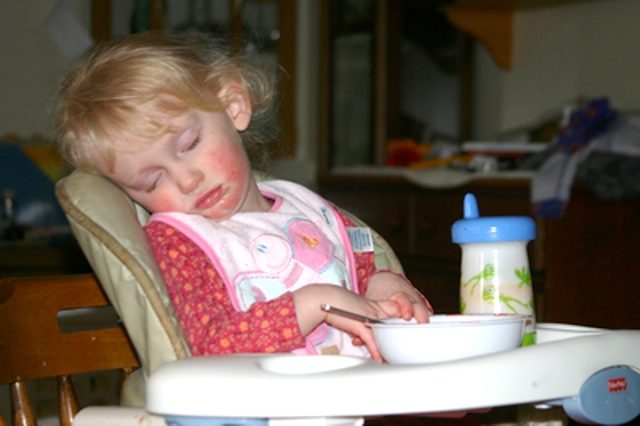Study Advises Parents and Children to Get Adequate Sleep to Stall the Risk of Childhood Obesity

Parents must get sufficient sleep and ensure that the children sleep more to prevent childhood obesity, advises a study.
Scientists from the University of Illinois found the hours of sleep and resting habits of parents are related to childhood obesity. Their study suggests watching television or playing video games before going to sleep and sleeping late at night can interfere with the family sleep routine. As a result, both parents and children miss out their daily dose of sleep that is vital for overall food metabolism in the body. This increases the risk of obesity in parents and children who are sleep deprived.
For the trial, researchers noted socio-economic factors and prevalence of obesity in 337 preschoolers and their parents. They also examined everyday habits like sleeping for seven hours or more and family meal routine of parents. In children, the study observed if they slept for 10 hours or more every day, exposure to TV and the presence of a TV set in the bedroom.
The analysis revealed children who did not sleep for required number of hours were more likely to become obese than those who ardently followed at least one of the protective routines. Children of parents who work till late night or sleep for less number of hours tend to follow the same. In an earlier experiment, the study authors were surprised to learn that many preschoolers went to bed as late as 11 pm.
"Parents should make being well rested a family value and a priority. Sleep routines in a family affect all the members of the household, not just children; we know that parents won't get a good night's sleep unless and until their preschool children are sleeping," said Barbara H. Fiese, study author and director of the University of Illinois's Family Resiliency Center and Pampered Chef Endowed Chair in a news release.
The experts recommend parents spend some relaxing time with young children, giving them a bath or reading a bedtime story to ensure they go to bed early. Many young children and even adolescents are sleep deprived for various reasons and insufficient sleep is bad for their growing needs and brain development. The authors believe childhood obesity can be avoided if every member of the family is able to eat well, play well and sleep well.
"Paying attention to those three pillars of health -- good nutrition, enough exercise, and adequate sleep -- benefits everyone in the family," Fiese said.
More information is available online in the journal Frontiers in Psychology.
© MD News Daily.
